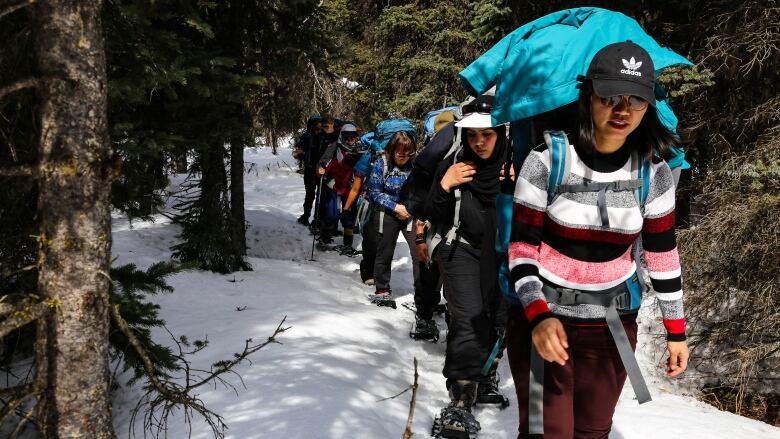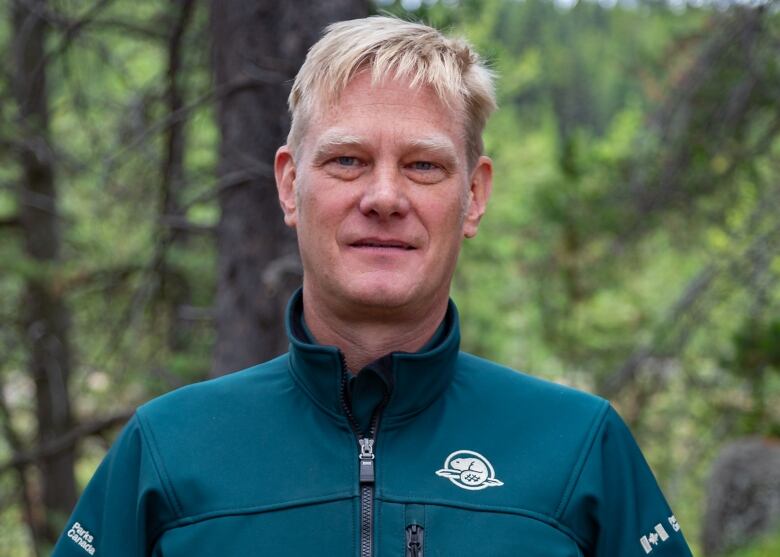Think it's OK to toss that apple core or banana peel in the woods? Think again
Human food scraps are an attractant to wildlife and take a very long time to decompose, experts say

Have you ever thrown your banana peel or apple core on the ground while you were hiking? Well, according toa representative from Parks Canada, theseremnants of popular hiking snacks should never be left behind.
JonStuart-Smith, a human-wildlife conflict specialist for Parks Canada, says any food source or scented item isan attractant to wildlife.
"We think that if we don't see things thatthe problem must go away and natural food sources like banana peels and apple cores would just eventually decompose," Stuart-Smith said.
"But these do take quite a long time to decompose so they can be attractants and are generally found before they decompose by wildlife."

Stuart-Smith, whose day-to-day role is making sure that wildlife and people are safe from one another,says food scraps left on hiking trails or roads can lead to wildlife mortalities.
"It could attract them to the roadsides where they then run the risk of being struck on the highways," he said. "Or they also can become accustomed to looking for food along the highway and then might approach vehicles."
Even if the organic food scraps aren't eaten by wildlife, it still can take months and years for certain fruits to decompose in the wild.
"An apple core could take weeks or months to decompose, so it's an attractant [for animals] for quite a long time if it's thrown into that ditch," Stuart-Smith said.
A hiker's perspective
Mandy Johnson, anavid hiker and owner of Active by Nature, a Nordic walking and urban poling company in the Canmore area, saysshe is consistentlyteaching people about living responsibly with wildlife andleaving no trace left behind on trails.
"There was a time when I used to toss banana peels and apple cores thinking that that was OK, but definitely not in the last few decades," she said.
She says when she takes people on Nordic tours, she explains how long it takes for food scraps to decompose.
"Of course bananas and apples are very common hiking snack and that stuff takes a long time to biodegrade. It leaves a lot of mess it's unsightly for one thing and it certainly does affect animals," she said.
"It's not natural to the environment and we just need to leave nature as it is and how we find it."
Leftover fruits arenon-native plants
Across North America, national parks are getting the word out that food scraps do not belong on hiking trails.
Food thrown alongside roads draws wildlife nearer to roadways and increases the likelihood they will end up as roadkill. Help us prevent this by remembering that even organic food scraps, like banana and orange peels are still litter. #LeaveNoTrace #LNT #GlacierNPS pic.twitter.com/ETndXfafkw
—@GlacierNPSStuart-Smith says another reasonorganic food waste doesn't belong in the wild is because apples, bananas and other fruits arenon-native plants.
He explains that if an apple tree were to grow from a discarded seed, it would create a huge problem for Parks Canada, which istrying to maintain the natural environment and species.
"It's not something that would naturally be in that kind of environment in the national parks anyway. We don't have banana trees or orange trees in the national parks," he said.
"It's just better for everybody in terms of safety for wildlife as well as the safety of people that those things go intocomposting systems."












_(720p).jpg)


 OFFICIAL HD MUSIC VIDEO.jpg)
.jpg)



























































































